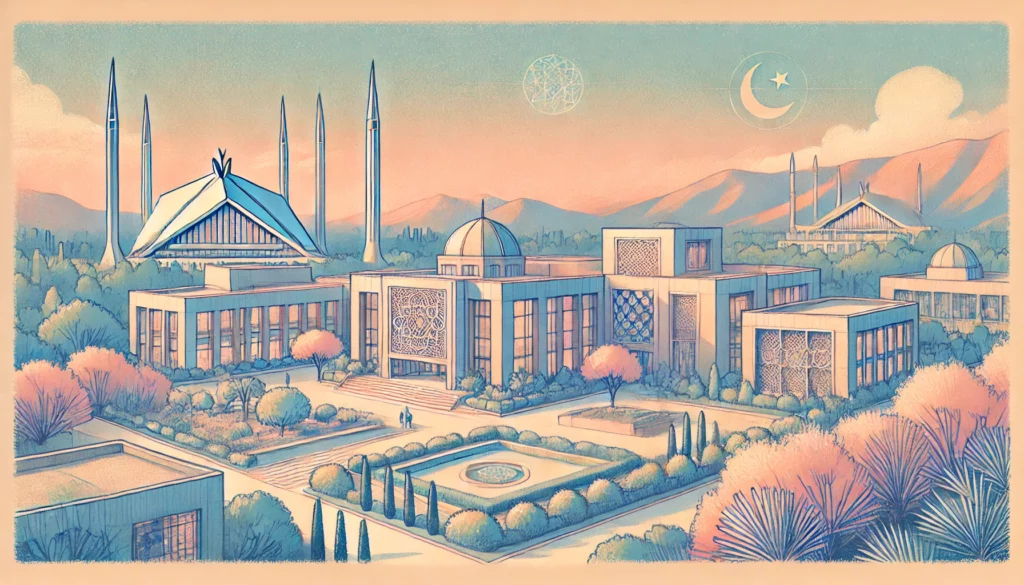A Comprehensive Guide to Teaching in International Schools in Pakistan
Entering the field of international education presents a unique and fulfilling opportunity for educators. Pakistan, with its rich cultural heritage and evolving educational landscape, is increasingly becoming a destination for teachers from around the world. This guide aims to equip prospective international educators with essential insights and information regarding teaching in international schools in Pakistan.
Overview of the Educational Framework in Pakistan
The educational structure in Pakistan is organized into six distinct levels: pre-primary, primary, middle, secondary, intermediate, and higher education. International schools predominantly focus on the pre-primary, primary, and secondary levels, offering internationally recognized curricula such as the International Baccalaureate (IB), Cambridge International Examinations (CIE), and the American educational framework.
These institutions are primarily private and cater to expatriates, affluent local families, and those seeking a globally-oriented education for their children. They are distinguished by their commitment to high academic standards, a diverse student population, and a holistic approach to student development.
Significance of International Schools
International schools serve a crucial function within Pakistan’s educational ecosystem. They provide an alternative to the traditional local education system, which is often characterized by a rigid and examination-centric approach. The flexible and comprehensive methodologies employed by international schools promote critical thinking, creativity, and a global perspective among students.
Furthermore, these schools typically feature advanced facilities, smaller class sizes, and a broad array of extracurricular activities, fostering an environment conducive to academic, social, and personal growth.
Qualifications and Credentials for Teaching in Pakistan
To teach in international schools in Pakistan, educators must meet specific qualifications and credentials. While requirements may vary by institution, the following prerequisites are commonly observed:
- A bachelor’s degree in education or a related discipline is generally required.
- Some institutions may necessitate a postgraduate degree or a recognized teaching qualification, such as a PGCE (Postgraduate Certificate in Education).
- Experience in teaching the specific curriculum offered by the school is often essential. For example, prior experience with the IB curriculum is highly valued for schools offering that program.
Visa and Work Authorization
Foreign educators must obtain a work visa to teach in Pakistan. The application process involves securing a letter of invitation from the hiring institution, which is then utilized to apply for a work visa at the Pakistani embassy in the educator’s home country. This process can be intricate and time-consuming, necessitating early initiation to ensure compliance with all requirements.
Additionally, a police clearance certificate from the educator’s home country may be required to verify the absence of a criminal record, a standard procedure for work visa applications in many countries.
Advantages and Challenges of Teaching in Pakistan
Teaching in international schools in Pakistan presents a distinct set of advantages and challenges. A thorough understanding of these factors is essential for making an informed career decision.
- Advantages:
- The opportunity to experience a new culture and gain valuable international teaching experience, enhancing one’s professional profile.
- International schools often provide competitive salaries and comprehensive benefits packages.
- Access to professional development opportunities that can further career advancement.
- Challenges:
- Adapting to cultural differences and potential language barriers.
- Addressing security concerns that may arise in certain regions.
Living in Pakistan: An Overview
Residing in Pakistan can be a vibrant and enriching experience, characterized by a diverse array of cultures, traditions, and culinary offerings. From the lively markets of Lahore to the tranquil landscapes of the northern regions, the country presents numerous opportunities for exploration.
However, transitioning to life in a new country may pose challenges. It is advisable for educators to familiarize themselves with local customs, learn basic Urdu phrases, and engage with expatriate communities to facilitate a smoother adjustment.
Conclusion
Teaching in international schools in Pakistan can be a fulfilling career path, offering the chance to significantly impact students’ lives while immersing oneself in a rich cultural experience. With the appropriate qualifications, a proactive mindset, and a willingness to embrace new challenges, educators can embark on a rewarding teaching journey in Pakistan.
Preparation is paramount. A comprehensive understanding of the educational framework, awareness of qualification requirements, and recognition of the benefits and challenges will empower educators to navigate this transition with confidence and success. Consider exploring the dynamic field of international education in Pakistan.
Advance Your International Teaching Career with IPGCE
Are you motivated to elevate your teaching career on an international platform in Pakistan but concerned about meeting the rigorous qualification standards? The International Postgraduate Certificate in Education (iPGCE) is designed to address these challenges. Our program enhances your qualifications, significantly increasing your prospects of securing your desired teaching position. Participants in our program have reported a 50% increase in interview callbacks, a 45% improvement in promotion rates, and a 300% reduction in feelings of professional isolation through our global network of educators. With a 90% satisfaction rate, the iPGCE equips you with the skills to adapt effectively to diverse educational systems, making you 65% more versatile as an educator. Our flexible online study options are tailored to accommodate your professional commitments. Take the first step towards a transformative teaching experience in Pakistan and a rewarding career trajectory. Enroll in the UK’s leading Teacher Training Course today and unlock your full potential as an educator.

